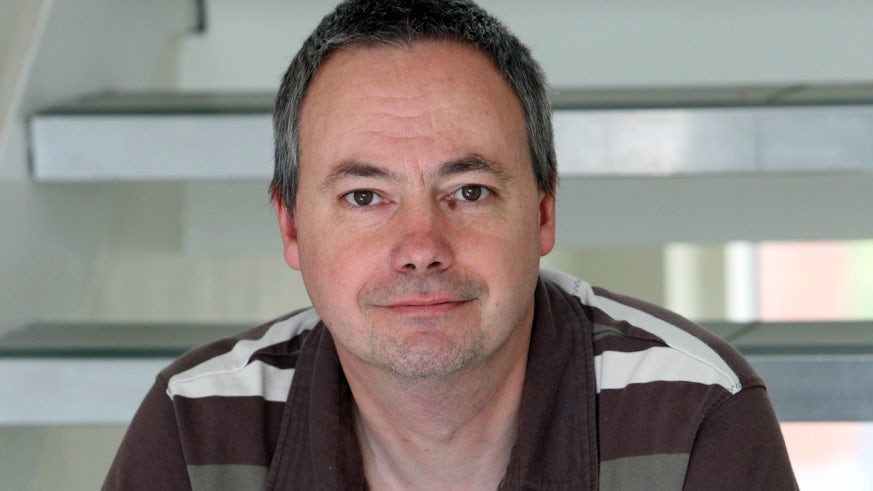Professor Alan Clarke: A legacy to build on
7 Ebrill 2016

On 5 September, we are holding a special memorial event to celebrate the life and work of Professor Alan Clarke. We hope you can join us.
In January, the European Cancer Stem Cell Research Institute and the wider university was shocked and saddened by the untimely death of the Institute’s inspirational director, Professor Alan Clarke.
The loss of one the world’s greatest cancer researchers has led to an outpouring of condolences from the international research community, for a man who inspired so many researchers, either directly through mentorship or indirectly as a result of his seminal research articles.
Alan's death is a huge loss to family, friends, colleagues and the wider scientific community. But he leaves behind a strong legacy in the form of a thriving research institute that has a clear vision of its future role in cancer research.
Established in 2013, the European Cancer Stem Cell Research Institute was the first institute of its kind to focus on cancer stem cell biology and related therapies. Alan was instrumental in the conception and formation of the Institute, overseeing a rapid expansion which saw the Institute grow from two remote research labs to a fully subscribed institute of 12 research groups, and 60 researchers and support staff within just a couple of years.
From its inception, the Institute was perceived as a high-risk, high-gain venture, exploring an unproven and somewhat controversial area of cancer research. As a true scientist who loved the opportunity to discover something genuinely new, this bold and exciting approach was a perfect fit with Alan’s own scientific ethos.
Central to Alan’s vision for the Institute was his aspiration to bring on board people with fresh perspectives and innovative ideas. He was also committed to nurturing new talent, and he set out to build a team of early-career researchers, complemented by a core of senior research academics.
This led to the adoption of an ‘incubator model’, in which seven early-career Fellows were provided with the infrastructure and mentorship support to shape their own research labs within an established environment of senior cancer research laboratories.
Alan’s commitment to forward thinking and aspirational ideas is something that is embedded throughout the Institute and its research teams. And this innovative approach has already paid dividends, with researchers making several significant discoveries within the first few years of operation.
Our scientists have devised a ‘stem cell’ test which could predict which breast cancers will respond to certain therapies, and also help to identify the most aggressive forms of the disease. Meanwhile, another of our research teams has developed a novel therapeutic compound with the potential to treat the most aggressive forms of breast and colon cancers, which has subsequently been licensed to a pharmaceutical company.
Both of these discoveries are in development and due to enter clinical trials in 2017. Progressing therapies through the clinical pipeline will be a key focus of the Institute going forward as we look to take ever closer steps to developing viable cancer therapies.
The Institute’s success thus far is due, in a large part, to its collaborative nature. From the outset, Alan was determined that the Institute would be a collaborative enterprise that encouraged interaction and rejected silo working. He was committed to developing collaborative relationships both within the Institute and further afield, recognising the advantages that shared learning can offer.
This collaborative ethos is embedded throughout the Institute and our joint research with the School of Pharmacy and Cardiff Cancer Research UK Centre, amongst others, continues to yield promising results.
Since January, the Institute has been headed up by Professor Jim Murray on an interim basis. We recognise the importance of having consistent long-term leadership and over the coming months we will be looking for a Director to further develop Alan's vision and build on the initial successes of the Institute.
Reflecting on the impact of Alan’s death, Interim Director of the Institute, Professor Jim Murray, said,
“Alan’s loss has been felt keenly by everyone within the Institute. Not only have we lost a great scientific mind, but also a valued friend and colleague.
The best tribute we can pay to his memory is to keep innovating and driving forward his vision of developing new cancer therapies that make a real difference to the lives of patients.”
On Monday 5 September we will be holding an event to celebrate Alan’s contribution to science. Please get in touch for more information.